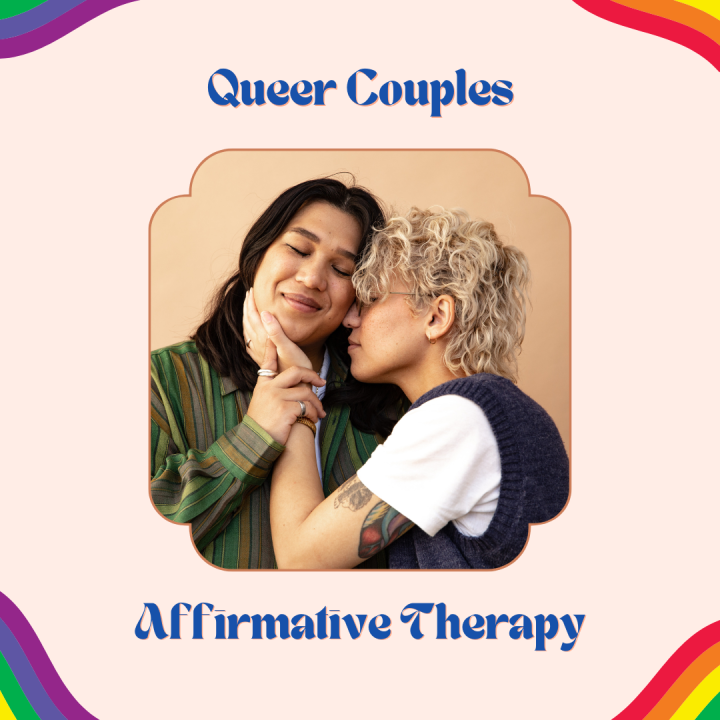Queer couples navigate a world that is often structured without consideration for their needs and experiences. Did you know that according to the National Coalition of Anti-Violence Programs, queer individuals face a higher rate of hate violence compared to their heterosexual counterparts? Or that, as reported by the Human Rights Campaign, 46% of queer workers say they are closeted at work? These aren’t just statistics; they are snapshots of the lived realities that queer couples bring into the therapy room.
Consider the landscape of legal rights. It wasn’t until 2015 that the U.S. Supreme Court ruled in favor of same-sex marriage nationwide. That’s a mere blink in history’s eye, and the implications are still rippling through the lives of queer individuals today. And yet, despite the legalization of marriage, the National Center for Lesbian Rights cites that queer couples still face legal and societal challenges ranging from discrimination in healthcare to difficulties in adoption processes.
Beyond legalities, there’s the day-to-day cultural navigation. A study published in the Journal of Marriage and Family revealed that queer couples are more likely to experience social isolation. Another paper in the American Journal of Orthopsychiatry noted that queer individuals often grapple with internalized homophobia, which can stem from relentless societal messages that devalue their identities. These are just the tip of the iceberg. The distinct societal pressures, the stress of minority experiences, and the complexities of navigating heteronormative spaces deeply impact the mental and relational health of queer individuals.
It’s not enough to simply say we can support queer couples. We must understand the fabric of their challenges — the weave of their daily experiences — to provide therapy that is truly resonant and effective. The next step for us as therapists? To ask ourselves if we’re truly equipped with the right tools to meet these needs head-on.
If we’re to stand by our commitment to serve queer couples effectively, we must first confront an uncomfortable truth: there’s a unique set of skills and knowledge intrinsic to this specialization that goes beyond the generalist training we received in graduate school.
The intricacies involved in queer couples therapy are profound. We’re not just talking about a couple’s dynamics, but also about the layered complexities of queer identities. For instance, how familiar are you with the history of the Stonewall riots, the significance of LGBTQ+ Pride, or the distinct forms of microaggressions queer couples face daily?
Research from the American Psychological Association (APA) underscores the necessity for therapists to understand the full scope of these experiences to provide culturally competent care.
But facts and familiarity are just the starting point. Effective therapy with queer couples means stepping into a space that is continually evolving. It requires a dynamic understanding of current social climates and legal changes, as well as a sensitivity to the ebb and flow of cultural tides. According to the Journal of Marital and Family Therapy, this includes staying informed about the latest research on queer relationship models, communication styles, and social support systems.
Now, let me offer my expertise. As a queer female therapist who has grown up in a queer household and devoted my studies and practice to queer issues, I’ve developed a depth of understanding that’s rooted in both personal experience and professional development. I run a private practice where these insights are not merely additive; they are foundational to the therapeutic work I do every day. And I’m here to share this knowledge with you. Through training, consulting, and a collaborative approach, I can help bridge the gap between your current practice and the specialized competence required for queer couples therapy.
In the practice of therapy with queer couples, there’s a lurking hazard in the form of heteronormative frameworks. Such frameworks are like ill-fitting garments, designed for one body but draped over another, without accounting for fit or comfort. The misapplication of these models can not only be unhelpful but can also exacerbate the challenges that queer couples are already facing. Frankly, most therapist are working within this framework – because they don’t really “get” the other.
Through my expertise, I can help you develop a nuanced understanding of these dynamics, avoiding the pitfalls of heteronormative assumptions and truly honoring the unique experiences of each queer couple you serve. It’s one thing to want to serve the queer community well; it’s another to actually be equipped to do so. The difference between a good therapy experience and a bad one often hinges on the therapist’s depth of understanding regarding the complex dynamics at play.
As therapists, we all enter the field with the best intentions, aiming to create a safe and healing environment for all clients. However, as we’ve outlined, working with queer couples without a robust grounding in the specifics of their experiences can inadvertently lead to less-than-optimal outcomes. Recognizing the crucial need for tailored educational opportunities, I am available for bespoke trainings and consultation services. My goal? To get you to a place of genuine competence and confidence in working with queer couples. I care deeply about my population – the queer community – because I’m part of it. I’ve experienced both sides of the therapy room, and I know the profound impact of working with a therapist who truly “gets it.”
So, follow me. Not just for updates on educational offerings but for a pathway to becoming the therapist your queer clients need and deserve. It’s about making a commitment to do more than just want to help; it’s about taking concrete steps to ensure that your help is as effective and affirming as it should be.

